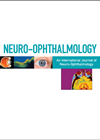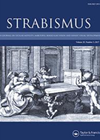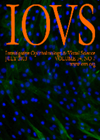
Journal Reviews
A case series of acquired esotropia in cerebellar disease
Acquired esotropia in cerebellar disease is well described but under-recognised. The pathogenesis of cerebellar esotropia is controversial. It is suggested it may be a result of disruption to central vestibular pathways. This article reports a case series of seven adults...
BT for intermittent exotropia
This study aimed to evaluate the effect of botulinum toxin (BT) on the amount of deviation and fusional control state of intermittent exotropia. Twenty-one patients (five male and 16 female) aged five to 18 years with progression of exotropia were...
Glasses or not?
In this excellent review article, the authors discuss how some hyperopes avoid strabismus but also ask why the youngest infants escape strabismus and older patients go on to decompensate. The review considers a number of related aspects and their inter-relations...







